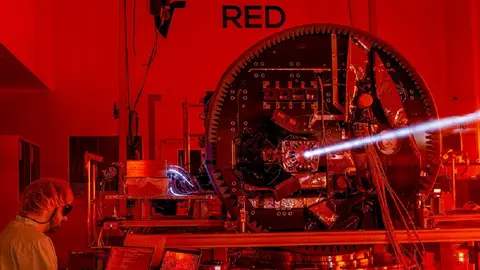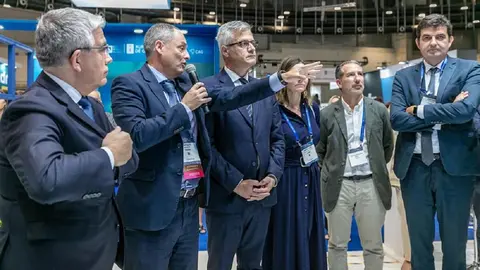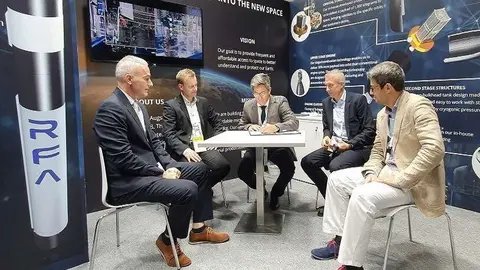Orchestral moves at Sener, Indra, Thales Alenia Space and Deimos Space
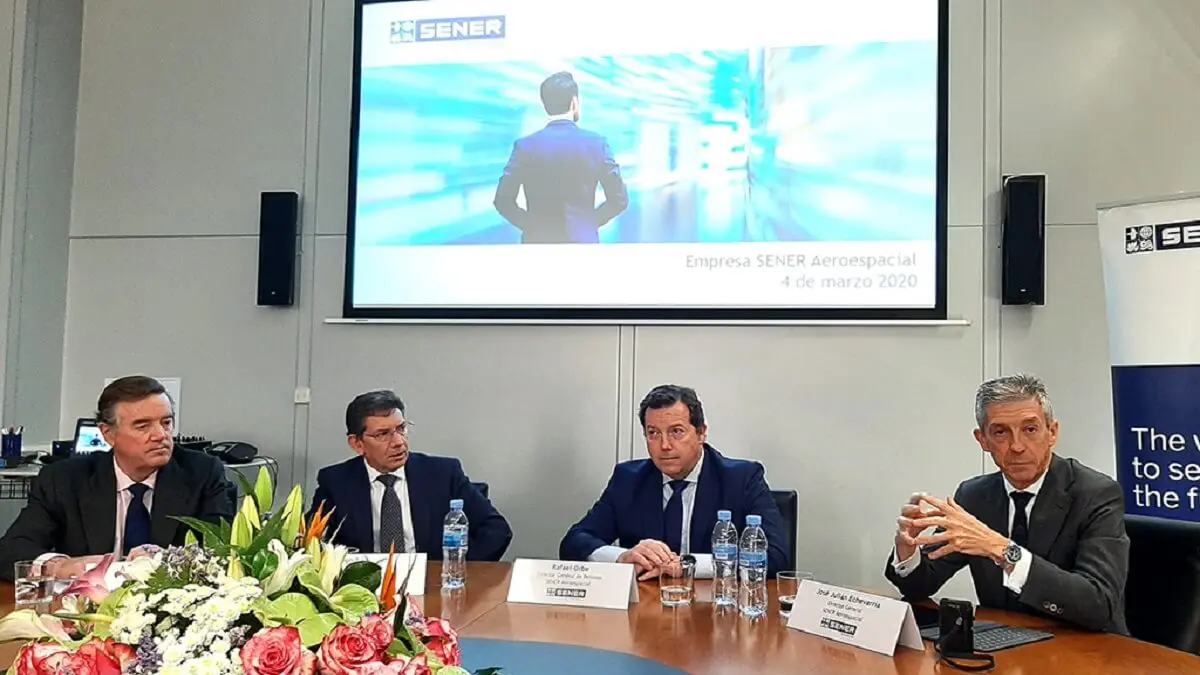
In essence, the ecosystem of so-called classical music is sustained by numerous symphony and philharmonic orchestras, whose repertoires of scores by the great masters delight the ears of fans in live, streaming, video and sound recordings. The other ecosystem, the military, generates products and services for national defence and to equip those in the ranks of the armed and security forces.
Orchestras participate in music festivals, cycles and seasons, performing symphonies, concerts and pieces by famous composers in concert halls and concert halls around the world, attended by thousands of enthusiasts. The defence, security, aeronautics and space industries showcase their products at national and international trade fairs and exhibitions, which are also attended by thousands of people.
The most recent show held in Spain was Aerospace & Defence Meetings-ADM in Seville (14-16 May), where more than 300 companies from 29 countries exhibited. It was preceded on 8 and 9 May in Madrid by Tecnosec, with more than a hundred exhibitors. Both were attended by a large number of professionals, national authorities and official delegations.
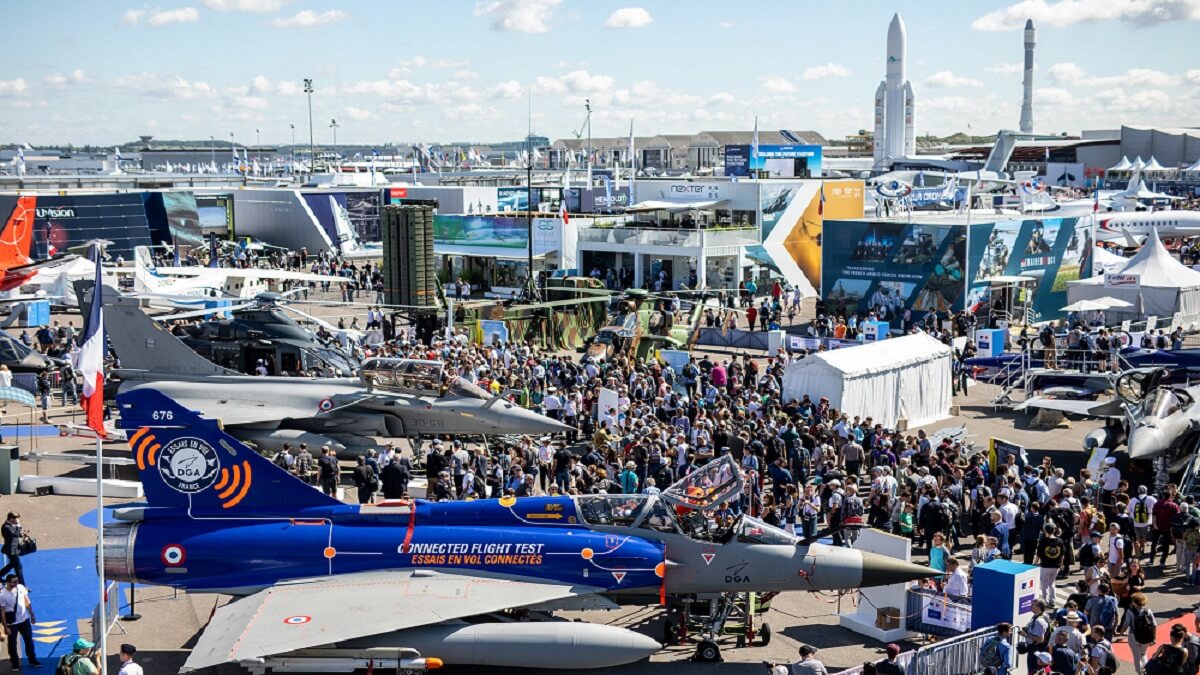
At the beginning of June, the much larger ILA Berlin show will open, with 550 exhibitors from 80 countries attending the 2022 edition. In the musical sphere, the festivals begin at the gates of summer, with the veteran Granada Music and Dance Festival, the London Proms, the Vienna Festival (Austria), the Aix-en-Provence Festival (France) and the Wagner Festival in Bayreuth (Germany), in July and August.
And what about the conductors. They are the ones who hold the baton and are the reference figure for the musicians. They are in charge of choosing the repertoire, setting the tempo, coordinating and indicating the entrance of the instrumental groups and the changes in dynamics. In short, they imprint their personality on the work being performed. Basically, it is the same task as the top management of the companies in the military industry.
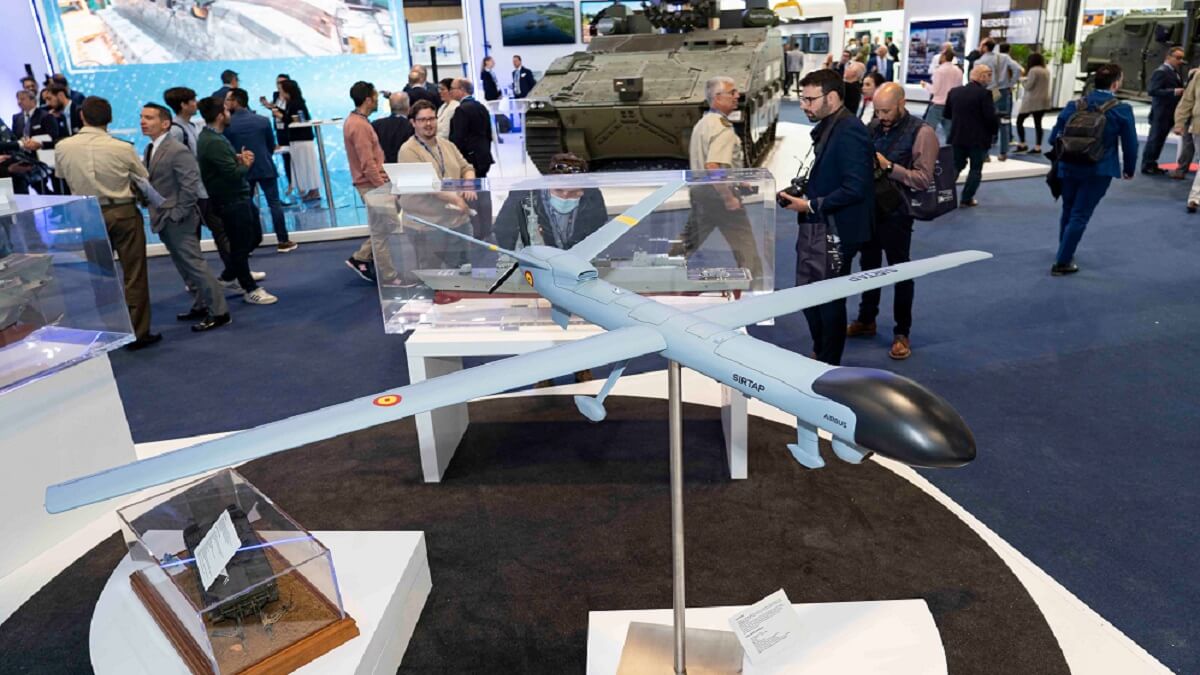
Taking positions for the immediate future
Continuing with the comparison, one of the symphony orchestras with a more consolidated programme is the Sener group, whose spearhead is Sener Aerospace and Defence. The General Manager's baton is in the hands of 58-year-old Jose Julián Echevarría, a veteran of the company.
At the helm of what could be called the "string instruments group" since early 2020 has been the 56-year old director general of Defence, Rafael Orbe, who in early May received the news he had been waiting for. The National Commission for Markets and Competition has authorised the closing of the purchase of the Spanish company SCR from the Japanese company NTT Data. With three decades of specialisation in unmanned air, ground and naval systems, SCR has marketed more than a thousand vehicles, mostly airborne targets for air defence systems training worldwide.
The acquisition of SCR complements Sener's acquisition exactly one year ago of Quark, an engineering company dedicated to data centre design, a sector that is growing exponentially. Taking control of SCR and Quark follows the lines defined by Sener's 2023-2025 Strategic Plan. On the one hand, to expand its product range. On the other, to strengthen its sales in third countries with the support of its twenty or so offices abroad.
Rafael Orbe's expectations with SCR include achieving synergies and having "our own technological demonstrators, to advance in programmes in which we already have a presence, such as NGWS/FCAS, Eurodrone and Sirtap". Also in "identifying and developing additional lines of business", for example, in drone swarms and marauding ammunition, "where Sener's engineering has a lot to contribute".
What could be described as the national symphony orchestra with the largest musical repertoire is Indra. Spain's leading technology multinational, it successfully performs at the world's major music festivals. It is present in 46 nations, has business operations in more than 140 countries and in 2023 it had revenues of 4,343 million euros, according to the company's own figures. But it is not enough.
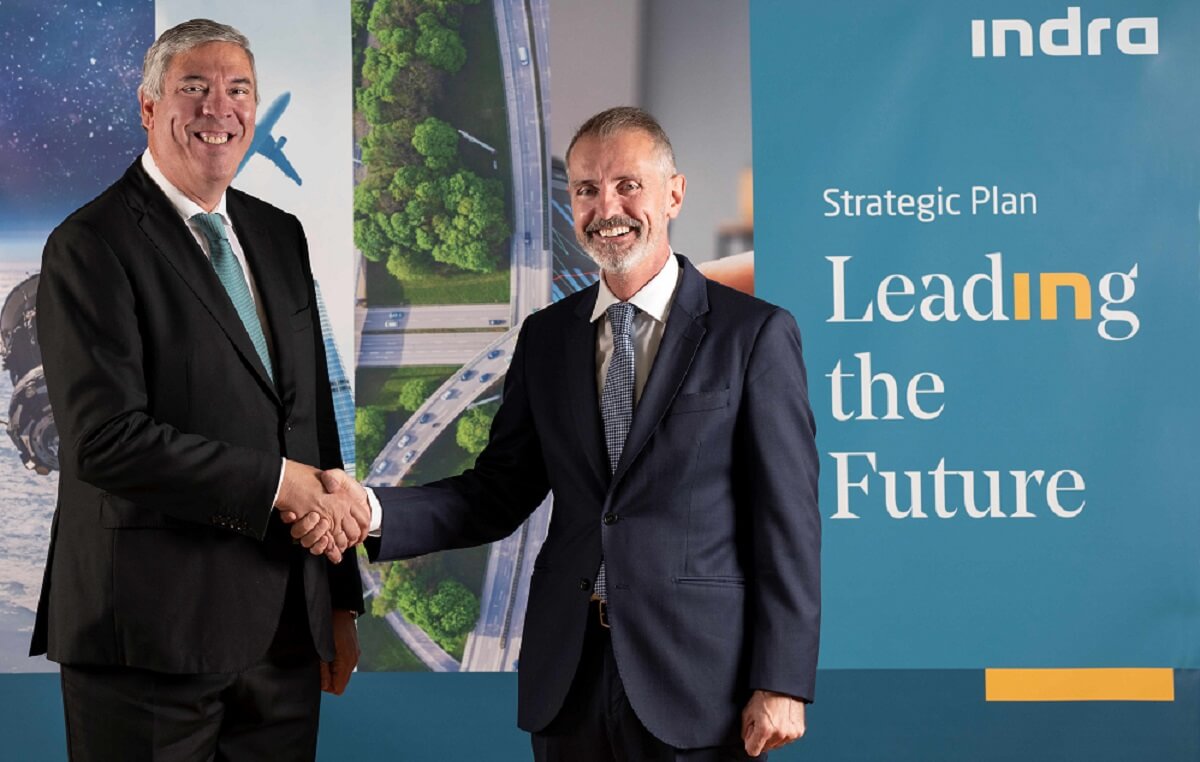
Tenured and associate conductors
The Presidency of the Government has long wanted to give life to the "national champion" of the Spanish aerospace and defence industry and Indra has been chosen to lead the initiative. This decision has led the Sociedad Estatal de Participaciones Industriales (SEPI) to become its main shareholder (28%), to lead Hispasat's shareholding (7.41%), and that of Telefónica, of which, step by step, it already owns the 10%.
Since 30 June 2023, its CEO, i.e. the chief conductor of Indra's symphony orchestra, has been José Vicente de los Mozos, 61. At the end of April, he was joined by an associate director, Marc Murtra, 51, the company's chairman.
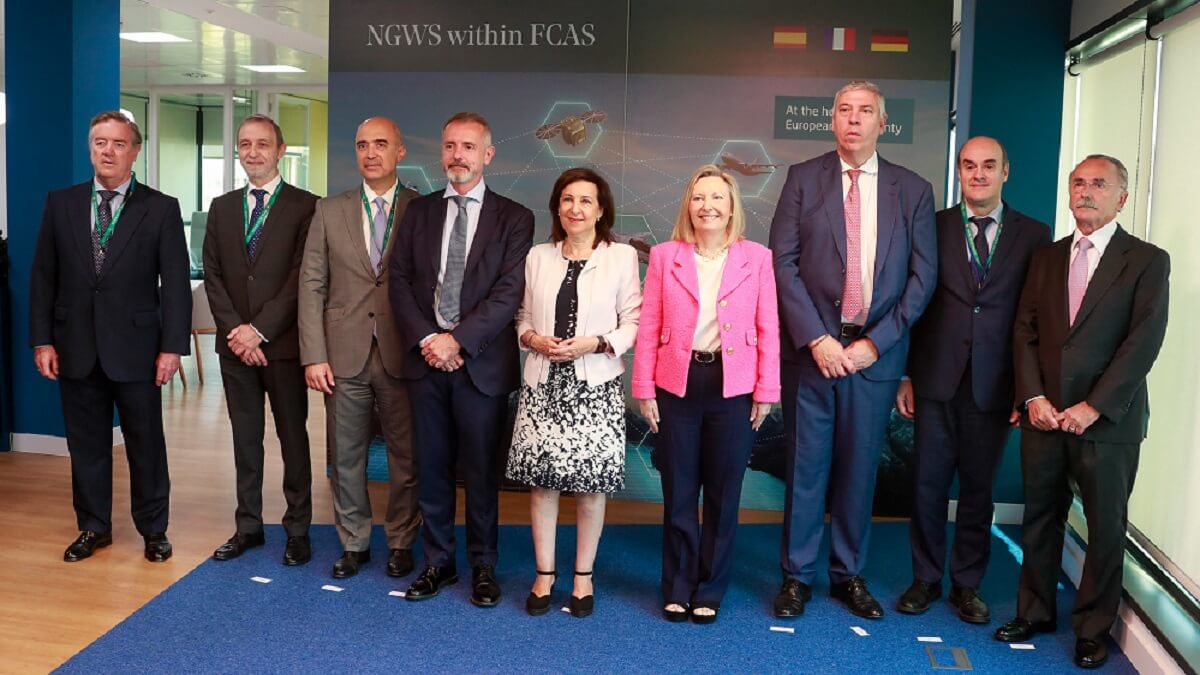
Given that Indra aspires to rub shoulders with the Berlin and Paris Philharmonics, the London Symphony or the Rome Opera House, it is essential for it to go on the hunt for other musical formations. It needs to acquire or become the reference shareholder of companies with products and services with a solvent market in sight. It has already done so with the air traffic management business line in the United States of Selex, bought from the Italian giant Leonardo; with the British company Park Air, dedicated to ground-to-air communications; and with the Spanish company ICASyS, in the field of cybersecurity.
Along these lines, De los Mozos has led the recently approved Strategic Plan 2024-2026 of the company, with a vision until 2030, which aims to provide the company with greater technological, economic, financial and innovative muscle to compete on a global scale with the powerful industrial corporations of Germany, France, Italy and the United Kingdom. One priority area in which Indra wants to grow is the space sector. It has committed itself to creating a space subsidiary in the near future, with which it aims to reach a turnover of around 1 billion euros by 2030.
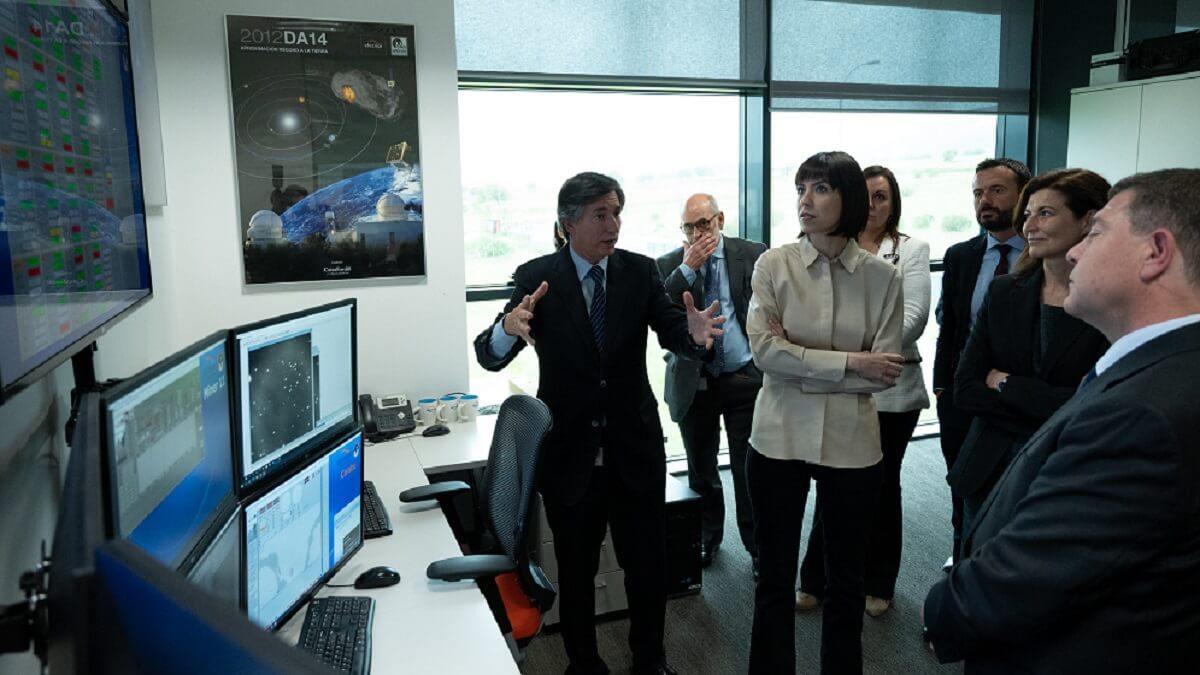
There have been two other recent additions to the select group of leading conductors. The powerful French-Italian satellite manufacturer Thales Alenia Space - owned by Thales (67%) and Leonardo (33%) - has selected Ismael López, 56, from Madrid, to head its important subsidiary in Spain as CEO. The multinational has also assigned López responsibility for its space equipment business, an activity that takes place in Spain and the firm's factories in France, Italy, Belgium, Switzerland and the UK.
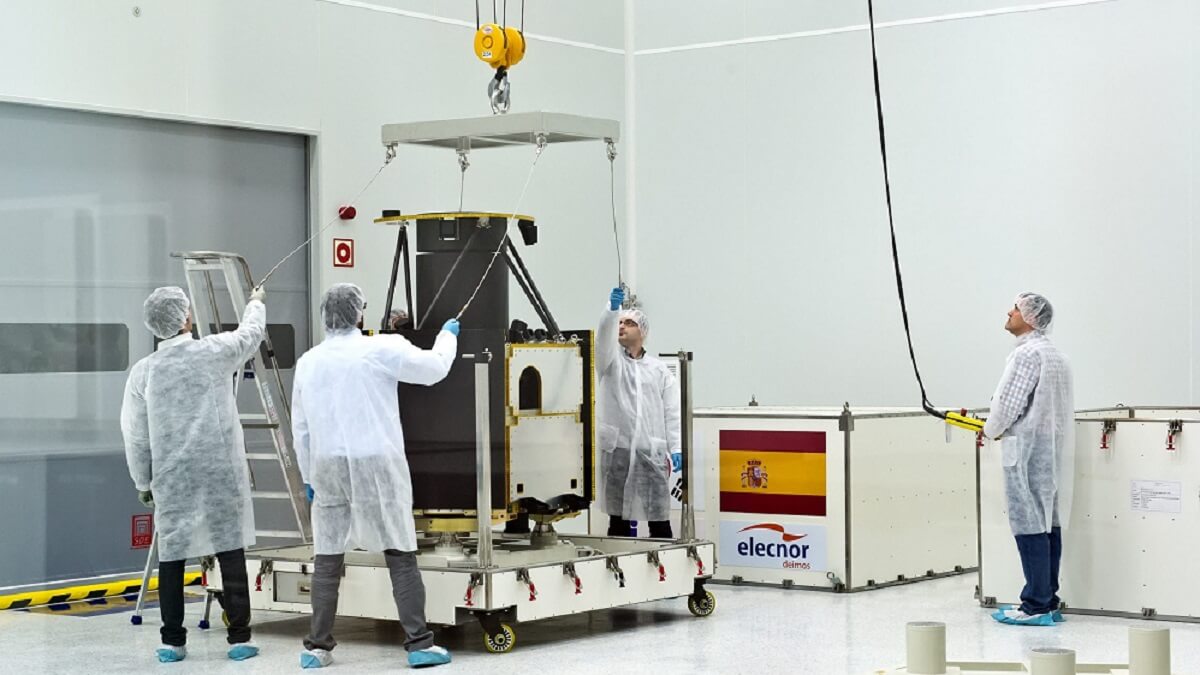
Ismael López, with almost 35 years in the space industry and since 2019 CEO of Deimos Space, the technology company of the Elecnor business group, has already been relieved of his duties. The new head is 45-year-old Italian Simone Centuori, the company's director of flight systems since mid-2015, who joined the company after leading major space programmes at GMV. The Spanish-Portuguese Atlantic constellation is in Deimos' sights, leading one of the consortia of companies vying to become the prime contractor for its Spanish component and its eight satellites. The decision will be made in due course.


